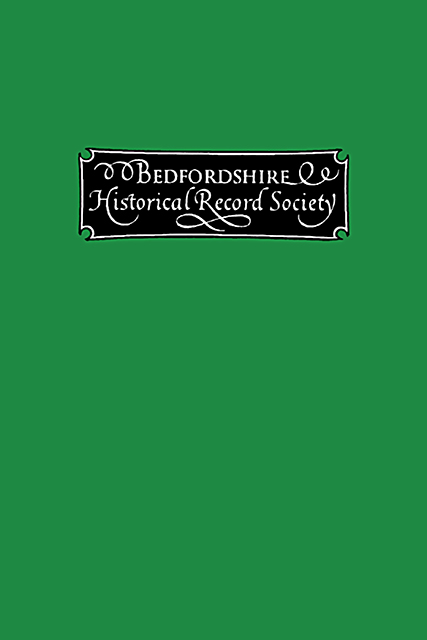Estate and Household Management in Bedfordshire, c. 1540
Published online by Cambridge University Press: 18 July 2023
Summary
INTRODUCTION
The manuscript printed below has been recently acquired, along with others of the More family papers from Loseley, by the Folger Library in Washington D.C. It is written in a hand characteristic of the period 1520-1550; though undated and unsigned, its internal evidence establishes a clear provenance.
It will be seen to consist of a series of instructions from a father, owner of the manor of Willington, Bedfordshire, to an heir already married. This locality is placed beyond any doubt by several references to neighbouring places, e.g. Mosbury, Ravensden and Bedford itself. These clues all point to one family, indeed to a well-known figure in Bedfordshire history : Sir John Gostwick, to whom the Duke of Norfolk sold the manor of Willington in 1529. The localism of the document proves conclusively that it was not written by the Duke: on the other hand, its references to the King enable us to date it, or rather its original, not later than the death of Edward VI. Between these terminal dates 1529 and 1553, three Gostwick owners of Willington died, yet only Sir John left a married heir. On his death, early in 1545, his properties passed to his son William, whose earlier marriage we shall shortly notice in another context. When this William Gostwick died without issue later in the same year, the bulk of his lands passed to an uncle, also called William, who, dying in 1549, left them to his own unmarried son, John. These later Gostwick lords of Willington hence appear decisively excluded from authorship.
Concerning the shrewd, acquisitive, yet far from inhuman personality of Sir John Gostwick, our existing information harmonises admirably with the present document. Having been Master of the Horse to Cardinal Wolsey, he subsequently rose as Treasurer of First Fruits and Tenths to be one of Thomas Cromwell’s most important assistants.
The interesting sidelights thrown by the document upon estate management in mid-Tudor Bedfordshire require no elaborate enumeration. At present we have little to lay alongside it. Unfortunately no documents illustrating the Gostwicks’ practices have survived among the Willington documents in the Duke of Bedford’s collection, nor is there a good series in the County Record Office for the other contemporary Bedfordshire estates.
- Type
- Chapter
- Information
- The Gostwicks of Willington and Other Studies , pp. 38 - 45Publisher: Boydell & BrewerFirst published in: 2023

